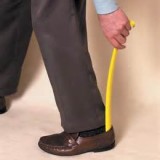Consultation reports are not “expert reports”.
On February 3, 2015, the BC Court of Appeal released Reasons criticizing and restricting the practice of shoehorning physicians consultation reports into evidence as expert opinion. In Healey v. Chung the plaintiff was injured in a 2005 pedestrian/vehicle collision. At trial the plaintiff claimed it was a ‘catastrophic accident’ and sought damages between $485,000 and $1,037,000. The trial judge rejected much of the plaintiff’s evidence and awarded damages of just over $50,000. In the course of the trial the defendant introduced consultation reports of treating medical practitioners into...
read moreOrthopaedic exams have little value in chronic pain cases.
One of the more frustrating aspects of practicing in disability benefits law that that insurance companies repeatedly send claimants who have soft tissue, chronic pain injuries to orthopedic surgeons for “independent” medical examinations to determine their eligibility for certain benefits or the reasonableness of treatment plans. They are requested to perform these assessments even though they are typically outside their area of expertise. More often than not, the assessment finds “no objective evidence on ongoing impairment”, following which, the insurer denies all benefits....
read moreDefence request for 2nd medical exam denied.
On July 24, 2014, the BC Supreme Court, Vancouver Registry, confirmed that a second Court ordered defense medical exam is inappropriate solely in anticipation of an event which may not occur. In Litt v. Guo the plaintiff was involved in two collisions and sued for damages. In the course of the lawsuit the plaintiff consented to a defence medical exam with a physician that addressed the plaintiff’s injuries. As trial neared the defence applied for a further exam with a new physician arguing that the initial report was dated and further that “the plaintiff might file a newer...
read more“Low Velocity Impact” strategy rejected by the Court.
On June 18, 2014, the BC Supreme Court considered and rejected ICBC’s “low velocity impact” strategy. In Dunne v. Sharma the plaintiff sued for damages as a result of two collisions. She alleged both physical and psychological consequences following these collisions. The defendant argued that any injuries the collisions caused were relatively minor as the collisions were modest. In support of the defendant’s argument accident reconstruction evidence was introduced which discussed the forces of the collision. In rejecting the defendant’s argument Mr. Justice Williams...
read moreMediation discussions not always confidential.
On May 8, 2014 the Supreme Court of Canada carved out an important exception to the promise to keep mediation discussions confidential. Companies and their insurers rely on private mediators to settle lawsuits partly because what is discussed at mediation stays confidential. This ensures that business strategy stays under wraps and public scandal for mistakes is avoided. In 2011, Bombardier and Union Carbide tried to settle a decade-long $32,000,000 court battle through mediation. In 1997, 1998 and 2003, Bombardier bought gas tanks from Union Carbide to use in Sea-Doo personal watercraft. In...
read moreFailure to examine plaintiff diminishes weight of expert report.
It is well established that failure of an ‘independent medical examiner’ to physically examine a patient is not, in and of itself, a reason for an expert report to be inadmissible in the BC Supreme Court. However, when a litigant relies on such a report the weight the court attaches to it is often negatively impacted. Reasons for judgement released by the BC Supreme Court on December 31, 2013, demonstrate this. In Johal v. Meyede the plaintiff was injured in a 2010 rear end collision. Fault was admitted by the defendant. The plaintiff suffered injuries which were ongoing at the time of...
read more









